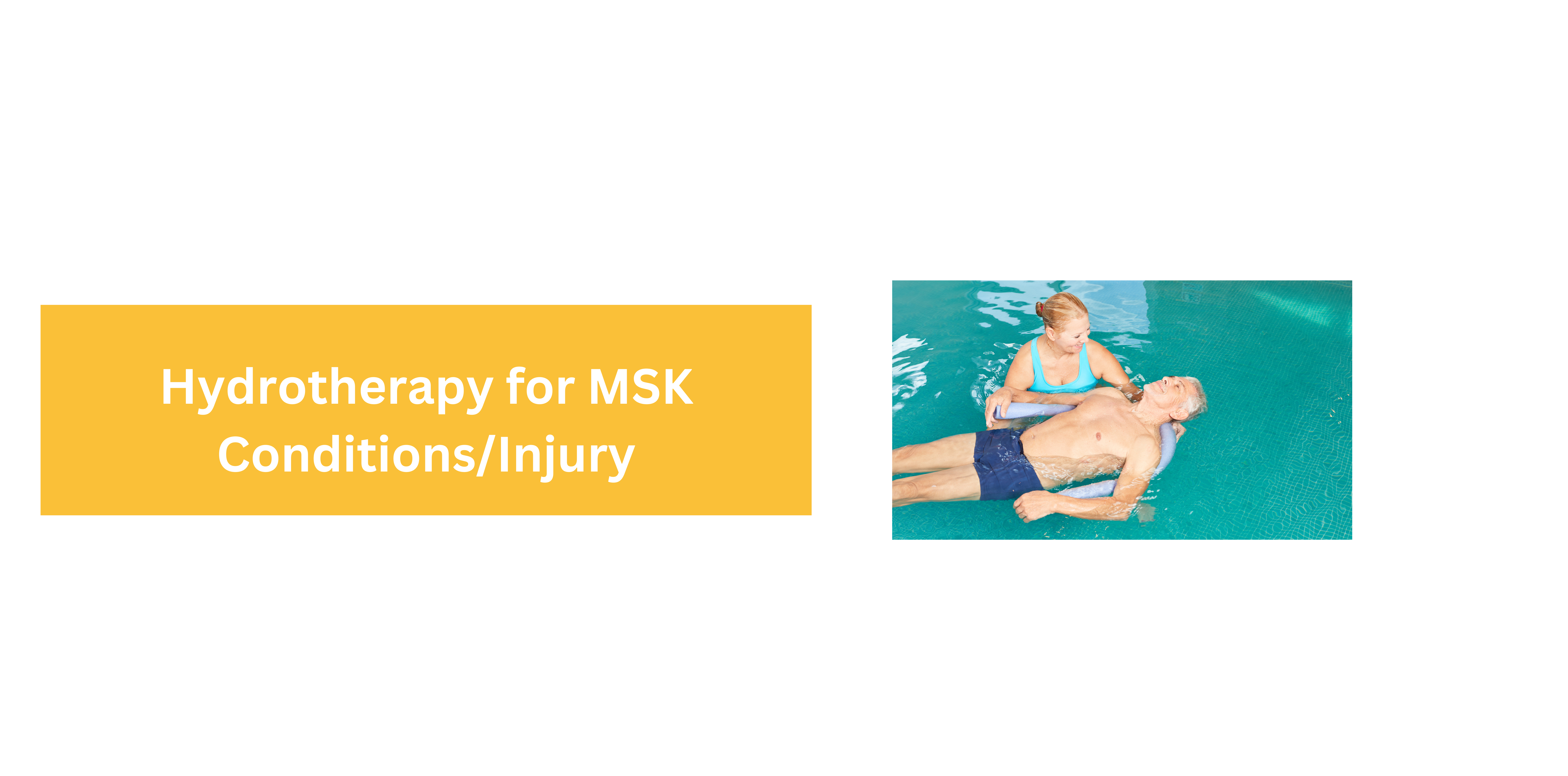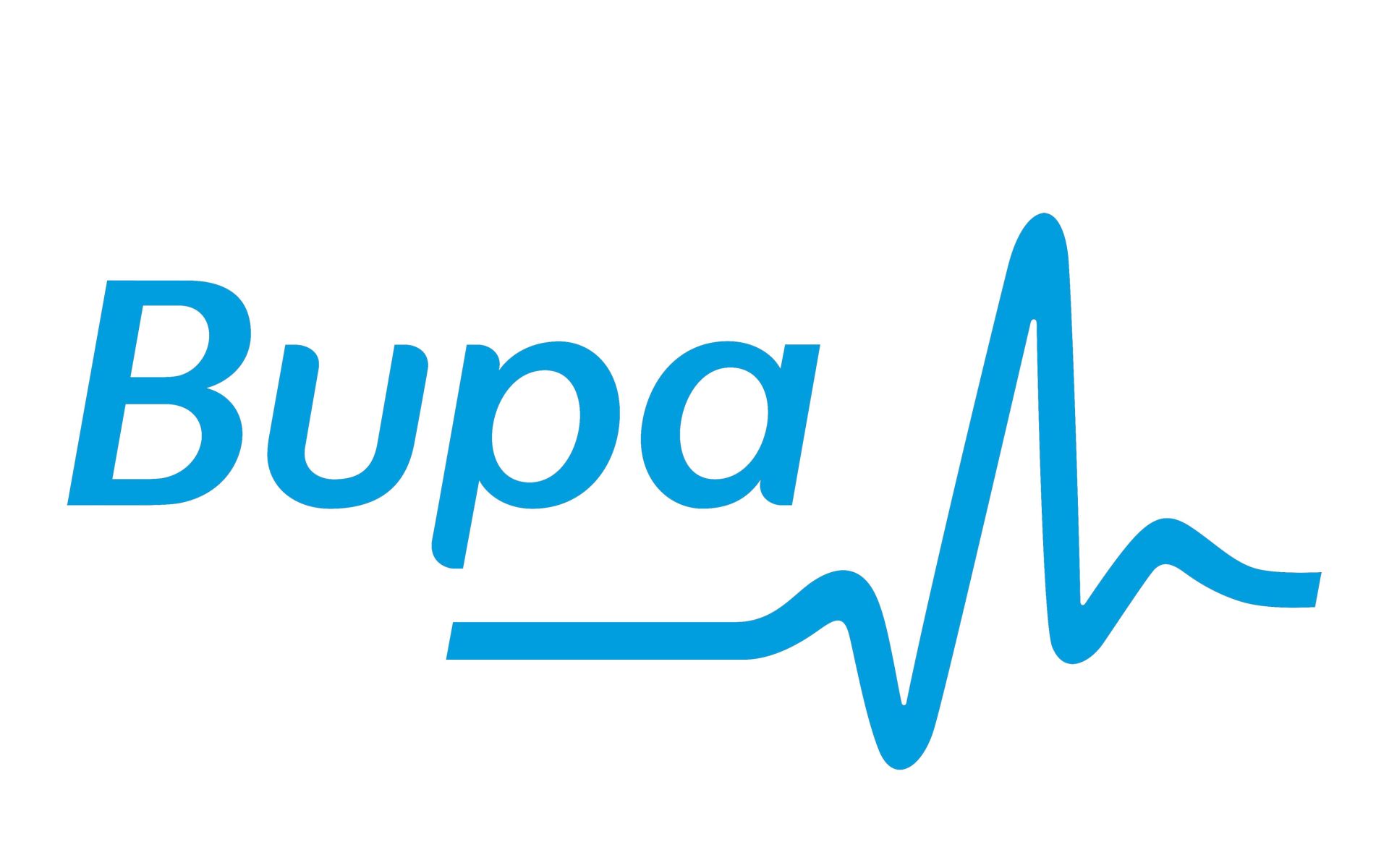Note: This makes all sizes equal and could alter the website layout.
Red:
Green:
Blue:
Red:
Green:
Blue:
The Benefits of MSK Aquatic Physiotherapy and Its Applications for Various Injuries and Conditions
Musculoskeletal (MSK) aquatic physiotherapy is a highly effective rehabilitation method that utilises the therapeutic properties of water to enhance recovery, increase strength, improve mobility and balance and reduce pain and swelling. It is particularly beneficial for individuals recovering from injuries, managing chronic conditions, or improving overall musculoskeletal function. By utilising the unique qualities of water, such as buoyancy, resistance, turbulence and hydrostatic pressure, aquatic physiotherapy offers an effective approach to rehabilitation that can be tailored to an individual’s requirements; it can be as gentle or as challenging as required.
Key Benefits of MSK Aquatic Physiotherapy
1. Reduced Impact on Joints
One of the primary advantages of aquatic physiotherapy is the reduction of gravitational loading on joints. Buoyancy supports body weight, alleviating pressure on bones, joints, and muscles. This makes it an ideal therapy for individuals who may find land-based weight-bearing exercises challenging, for example individuals with arthritis, joint replacements, chronic pain conditions or post operative.
2. Pain Relief and Muscle Relaxation
The warmth of the water in hydrotherapy pools helps to relax muscles and reduce pain, making movement more comfortable. This can be particularly beneficial for those with conditions like fibromyalgia, osteoarthritis, and chronic lower back pain.
3. Enhanced Strength and Endurance
Water provides natural resistance, which helps to strengthen muscles without the need for heavy weights. Unlike traditional resistance training, the multidirectional resistance of water allows for a more balanced development of strength and endurance while minimising the risk of strain and injury.
4. Improved Balance and Coordination
Aquatic physiotherapy aids in balance and coordination training by providing a safe yet challenging environment, to help retrain balance reactions. Furthermore the hydrostatic pressure of water enhances proprioception (awareness of body position), which is particularly beneficial for individuals post- operatively.
5. Faster Recovery from Injuries
Water-based therapy may help accelerate the healing process by promoting blood circulation and reducing swelling. It allows patients to start rehabilitation sooner than they might be able to on land, particularly for those recovering from fractures, ligament injuries, or post-operative procedures.
6. Increased Mobility and Flexibility
The force of buoyancy can be utilised to allow for greater ease of movement, enabling individuals to perform exercises that may be too challenging on land. This improved range of motion is especially helpful for patients with stiff joints, muscle tightness, or mobility impairments.
Common Injuries and Conditions Treated with MSK Aquatic Physiotherapy
1. Arthritis and Joint Conditions
Aquatic physiotherapy is widely used for managing osteoarthritis, rheumatoid arthritis, and other degenerative joint diseases. The water’s buoyancy reduces joint stress while allowing for gentle movements that improve flexibility strength and function.
2. Post-Surgical Rehabilitation
Patients recovering from surgeries such as knee or hip replacements, ligament repairs, or spinal surgeries benefit from aquatic therapy as it allows them to begin exercises earlier; reducing stiffness and increasing strength and thus improving overall recovery time.
3. Sports Injuries
Athletes and weekend warriors recovering from sprains, strains, tendonitis, or ligament injuries often use aquatic physiotherapy as a safe way to maintain fitness and regain strength without the high impact of land-based training.
4. Back Pain and Spinal Conditions
Conditions like herniated discs, sciatica, and chronic lower back pain can benefit greatly from water-based exercises. The decompression effect of water reduces spinal load, allowing for gentle stretching and strengthening exercises that support spinal health.
5. Fibromyalgia and Chronic Pain Syndromes
Hydrotherapy helps individuals with fibromyalgia and other chronic pain conditions by providing gentle movement, warmth, and relaxation, which reduces pain sensitivity and enhances overall well-being, patients may well find they are able to do more in the pool environment and so can gradually increase muscle strength and endurance.
6. Neurological Conditions
Individuals with neurological conditions such as stroke, multiple sclerosis, or Parkinson’s disease benefit from aquatic therapy’s ability to improve balance, coordination, and movement patterns in a low-risk environment. Check out our hydro service for Neurological conditions.
What might an MSK Aquatic Physiotherapy Session include?
Our aquatic physiotherapist can design a personalised treatment plan based on your individual condition, goals, and abilities. Sessions typically include:
MSK aquatic physiotherapy is a highly effective, low-impact rehabilitation approach that benefits a wide range of conditions and injuries. Whether recovering from surgery, managing a chronic condition, or improving overall musculoskeletal health, aquatic therapy provides a safe, supportive, and therapeutic environment for rehabilitation. By incorporating water-based exercises into treatment plans, individuals can experience enhanced mobility, reduced pain, and improved overall quality of life, and what’s more you don’t even need to be able to swim!





